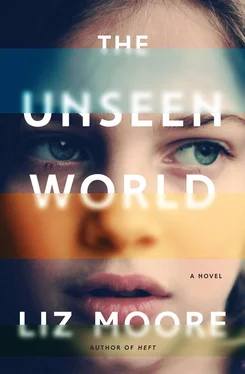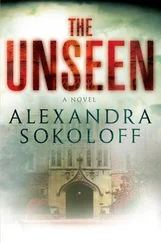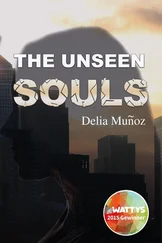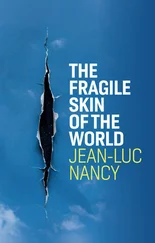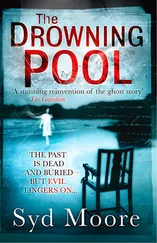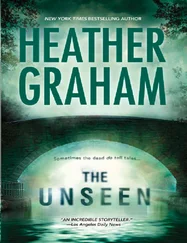“Stay out of this house,” Ada shouted after him with finality. “It’s not your house. It’s David’s house and mine.”
“I was trying to help,” he said on his way out. He stammered as he said it. He was in the kitchen, on the other side of the wall, and he sounded uncertain, as if he were asking himself a question. As if he were on the verge of tears.
It was only after he left that she allowed herself, momentarily, to be impressed that he had gotten into the computer at all. She had thought it irreparable, without David’s guidance. She had never been able to fix it herself.
She sat down in David’s chair. For a long while after Gregory left, she stared at the computer screen.
At the top of the document Gregory had left open was a paragraph, disguised in David’s code:
We have learnt that the exploration of the external world by the methods of physical science leads not to a concrete reality but to a shadow world of symbols, beneath which those methods are unadapted for penetrating. Feeling that there must be more behind, we return to our starting point in human consciousness — the one centre where more might become known. There we find other stirrings, other revelations (true or false) than those conditioned by the world of symbols. Are not these too of significance? We can only answer according to our conviction, for here reasoning fails us altogether. —A. S. Eddington
Below it were three more phrases.
Ivan Sutherland ,
Sword of Damocles .
Elixir’s house .
She wrote down the paragraph, and the three phrases that followed, on the scrap of paper that Gregory had left behind. Then she folded the page in quarters and put it into her right pocket.
This text; the For Ada disk; the train ticket to Washington. These items now constituted what she considered to be her only clues. She would protect them carefully. She would keep them all together on the top shelf of her closet at Liston’s house, tucked inside the pages of the dictionary.
Finally, she went upstairs to David’s room, to retrieve what she had originally come for: it was the family portrait in David’s dresser, the one she had gazed upon so many times, searching for answers about her own past. It was the David she knew in that picture, almost without question — same posture, same nose, same half-bemused expression as he stared into the lens. But if Ellen Palmer had been telling the truth, the people behind him were not, apparently, Sibeliuses. Who they were remained to be seen.
For the first time in a month, Ada walked over the bridge to the bus stop and waited for the bus that would take her to Quincy. In her mittened hand she carried the portrait. Several other people joined her. It was a gray, blustery day, almost unbearable when the wind blew. Ada turned up the collar of her coat and sank her chin down into it.
On the bus, she wondered what David would look like. Would he remember her? Or, in her absence, would he have forgotten her completely, erased her from his mind, overwritten her with something entirely different?
At St. Andrew’s, after signing in, she walked down the two long hallways toward her father’s room and then knocked lightly at the door, slightly ajar, before entering. When she did, she saw only the crown of his head over the top of his armchair. Just as he had been the last time she’d seen David, he was turned toward the window that faced the harbor, and he was motionless. His roommate, Paul, was lying on his bed, asleep. It was late morning.
Ada walked toward her father, afraid to startle him, afraid of whom she would find.
“Hello,” she said, but there was no response.
She circled around to the front, holding her breath. There in the armchair was David. She was relieved to find that he did not look so different after all. Thinner, yes; smaller in general; but David nonetheless. The staff at St. Andrew’s took good care of him. Somebody shaved his thin cheeks; somebody combed what little hair he had. He had one hand on each arm of the chair, and he lifted the right one, as if in greeting.
“Hi, David,” she said again. “It’s me. It’s Ada.”
“I’ve been waiting for you,” said David, unexpectedly. His eyes were rheumier than they had been the last time she’d visited. They seemed to her to be a lighter blue.
“I know,” said Ada, with a certain amount of relief. “I’m sorry.”
David raised and lowered his eyebrows, sort of skeptically. Then he shifted his gaze once more to the window.
“How have you been?” asked Ada.
“Oh, my. Oh, here and there,” said David. “For heaven’s sake.”
“Have you been eating?”
“Oh, yes,” said David.
Ada sat down on the bed across from him. She was still chilled from the air outside. She did not take her jacket off. David raised a hand to his head, touched it with an open palm, patted his brow lightly.
How much she longed for his old self, in that moment: she could feel the wish inside her, a hummingbird. If he would stand up from his chair — if he would simply stand up and walk with her, out of that place, and back to their old life in Boston. Instead, she produced the portrait she had been keeping tucked inside her pocket. She looked at it herself for a moment, studying the boy in the picture, then looking up at her father. There was no doubt, she thought, that this was David.
“I want to ask you something,” said Ada.
She stood up, knelt down in front of his chair, held the picture out so he could see it. He shifted his cloudy eyes downward without moving his head.
“Who are they?” asked Ada, pointing to the adults in the picture.
“Well, that’s Mother and Dad,” said David.
“But what are their names?” asked Ada.
“Oh, for heaven’s sake,” said David. “Mother and Dad.”
He studied the picture again, and then reached toward it, tracing the faces with one finger. There was that accent again, the one she could not place: it was not David’s accent. Not his voice.
“Where’s Susan?” David asked suddenly.
“Susan?” asked Ada.
“Susan,” he said, looking up at her suddenly, as if addressing her directly. “Susan, there you are. I’ve been waiting for you.”
“What’s your name?” asked Ada, and he held her gaze for what seemed like quite a while.
“Come on, you know it, Suze,” he said at last.
“What’s your name?”
“Harold Canady,” said David. And he held one finger to his chest. Then he pointed one finger at her slowly. “And you’re Susan Canady.”
“I missed you,” David said, his light eyes filling completely with tears.
Gently, surely, he bent back the brown weathered mat that surrounded the portrait, and from it removed the photograph itself, as if to inspect it more closely. And for the first time she saw what had been beneath it: there, in the bottom right corner, in a curling, hand-drawn white script, five words: The Strauss Studio. Olathe, Kansas .
Ada had slept for an hour, maybe less, when she woke up panicked, thinking she had missed her alarm.
She grabbed for the phone on her nightstand: 5:59 a.m. The alarm would sound in a minute. Briefly, she lay her head back on her pillow. Her neighbors had played beer pong until 4:00 in the morning. How, she wondered, did they get up for work in the morning?
She showered and dressed. She chose her outfit carefully: something that read as simultaneously young and powerful. A blazer and close-fitting dress pants. She would get to work a little early, go through the presentation one last time with Tom Tsien. She ran through the people who would be at the table with them: three members of the board; the CEO, Bill Bijlhoff; about a dozen potential investors who had been courted for months; and the VP of marketing, Meredith Kranz. Like many of Tri-Tech’s newer employees, Meredith was improbably young for her title — twenty-nine, perhaps, or thirty at most — and impeccably dressed. She wore brands with names that baffled Ada. “This is Acne,” Ada had heard Meredith saying once to a colleague, about a jacket she was wearing. And Ada Googled the brand name to make sure she had heard it correctly.
Читать дальше
